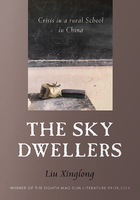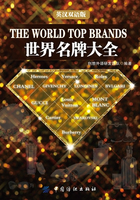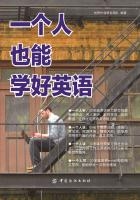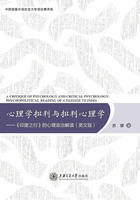To bring the process back on track, Xi met with them on the evening of the 3rd of February. In a critical tone he said:"Your 'requests' bear a striking similarity to 'the sort of orders given to cadres by Cultural Revolutionaries'. Hosting the meeting in the Friendship theatre wasn't a plan to marginalise you. It will be very diffcult to change the venue at this stage, and if the meeting gets cancelled it will be reported in the press throughout China and abroad. Why do you insist on choosing the place for the meeting? I didn't just decide on it myself; the whole committee met and delib-erated before settling on a place. As for your second request, there simply isn't enough time for me to attend your meeting; I have to go to Zhaoqing to attend the local committee's meeting about the implementation of the 3rd Plenum's decisions in the area. I simply can't find the time, but rest assured that the provincial committee is already paying suffcient attention to your rehabilitation. Comrade Wu Nansheng has been entrusted with the matter, and he will give a speech at the meeting. With a member of the provincial standing committee hosting the meeting and clarifying the committee's position, does it really matter if I can attend or not? You place too much importance on that. As for the third matter, it should be possible to find time tomorrow to meet with those who've suffered for their association with 'Li Yizhe.'"
Once they learnt of all the painstaking work Xi had done for them, Guo Hongzhi, one of those to be rehabilitated, said emotion-ally:"Before today's meeting, we hadn't realised you were willing to reach a compromise." Xi responded:"It's not about compromise, it's about finding a suitable way of sorting this out." Afterwards, Xi held frank and open discussions with them, and they reached agreement on all the material points. The next afternoon, Xi met with some thirty Li Yizhe members including Li Zhengtian, Guo Hongzhi and Yang Wanxiang in the meeting room of the committee organisation department's Donghu reception building. He shook hands with all of them, and when he saw that Yang was wearing a Lei Feng-style hat, patted him on the head and joked:"Hey, I love your hat!" Yang was disarmed at a stroke, and felt a warming familiarity well up inside him that he would never forget.
Xi announced:"It's hardly surprising that everyone here should have suffered so much, in a period of such chaos. You've hard a hard time of it, but so have I, and I'm still here, carrying on. The question of Li Yizhe should be resolved as soon as possible, but this was impossible until the pernicious lingering influence of Lin Biao and the Gang of Four had been purged. This is why it took until the 30th of December last year to ensure your release. There is a process that has to be gone through to get things done. There are so many cases of injustice and maltreatment at the moment, and they all need time. It wouldn't do to skim over a pertinent fact in our haste and rehabilitate someone only for problems to arise later. People ask me:'Will you attend this or that rehabilita-tion meeting?' and I have to explain that I can't. Don't just trust one person; the Party committee is a collective leadership, and as long as the decision we're acting on is a collective one it doesn't matter which member is present to represent us. I'm no obfus-cating bureaucrat; I've had three discussions with Li Tianzheng and others, and the one last night went on until 2 am. I've only got so much time as the first secretary of a province; do you still think it undemocratic of me if I don't attend your meeting?"
A few people still stuck to their demands, requesting adamantly that the meeting be held in the Sun Yat-Sen memorial hall and that Xi Zhongxun be present and give a speech, and Xi roundly criticised them for not abiding by the agreements made the night before. Thanks to his efforts, it was eventually decided to hold the meeting in the Friendship Theatre. Someone pointed out that several documents pertaining to their cases were still classified, and asked what should be done about them. Xi replied:"those documents can be destroyed, as long as their content doesn't get out. I'll give you all my phone number, and if there are cadres or units that won't comply, give me a call and I'll come round as soon as possible to personally supervise them incinerating every docu-ment." His promise elicited eager applause from those present, and the meeting carried on in much the same way for over two hours.
On the afternoon of the 6th of February, the provincial committee held a mass meeting attended by over a thousand people at the Friendship Theatre, publicly rehabilitating those who had been labelled part of an "anti-revolutionary clique" as associates of the Li Yizhe group. At the meeting, provincial standing committee member Kou Qingyan read from the document detailing the committee's decision, announcing that the poster was not reac-tionary and that it too deserved rehabilitation. Provincial Secretary Wu Nansheng then gave a speech on behalf of the committee. He said:"There are two important facets to this case. The first is that of the so-called 'reactionary' poster. Looking at it now, the points raised in this poster about democracy and socialist institutions and the viewpoint from which it discussed them were correct in many respects, but we [the Party] treated it as the work of a destabilising group looking to create a new 'Hungarian Uprising' and made criticisms of it that were incorrect. The second question concerns the so-called counter-revolutionary clique. It is the opinion of the committee that 'Li Yizhe' was not a counter-revolutionary group, and its members are not enemies of the People." Li Zhengtian and three others also made speeches, which were unanimous in their support for the committee's decision and for Wu's speech.
At Xi's direction, the Guangdong committee took account of the lessons learned from the experience of the Li Yizhe case. It was clear that open discussions needed to be continued, the people still needed encouraging to engage in more liberated ideology, to develop (proletarian) democracy, to seek truth from facts, and to take objective conditions as the starting point for enquiries. It needed reinforcing that whatever a person's identity or ideolog-ical stance, if what they said was not in accordance with objective conditions then it would not do to accept their arguments; they needed revising. Only then could an atmosphere of activist thought begin to flourish, only then could the masses' initiative be stirred up and directed towards socialist modernisation and struggle. (The above came from Lu Di's essay in the 20/01/2008 Yangcheng Evening News, "Express your grievances however you see fit, because we got it wrong.")
Xi had a thorough and profound understanding of the CCP Party centre's momentous decision to shift the focus of its work onto economic development. He knew that Deng Xiaoping's first visit to Guangdong after his return to politics in 1977 with Marshal Ye Jianying was a sign that he placed great importance on Guang-dong's economic development.
Marshal Ye often returned to Guangdong after the Gang of Four were smashed. One time, when he was touring his old home region of Mei County, he expressed his burning anxieties to the leaders of the provincial committee:"The area is still so poor, you need to find a way of improving the economy here, and quickly!" Xi understood that the strategic goals of leading lights like Deng and Ye in pushing for speedy development in Guangdong were entirely in line with his own ideology. The entire provincial committee was chomping at the bit to get started; Wu Nansheng had volunteered to begin pilot schemes in his home area. After taking full account of the valu-able experience, accumulated wisdom and geographical advantages at his disposal in Guangdong, Xi decided to take the initiative for the Party, and formally propose making fullest use of advantageous situations both inside and outside the country, taking the first step towards Reform and Opening Up in Guangdong to bring about the development for which it had been waiting for so long.
21
By now it was early 1979. This year the red silk-cotton trees flow-ered early, filling the provincial committee's courtyard with the sense that it was already spring.
Xi Zhongxun and Yang Shangkun received a notice from the central government, requiring their attendance at a work meeting. The next day they had to fly to Beijing, but Xi still didn't feel ready. He had a strange feeling, much like the one he'd had on nights before big battles: whether or not Guangdong would be able to open up to the world may all come down to this meeting. That afternoon, he held a meeting of all members of the provin-cial standing committee who were in Guangzhou, again discussing the tactics he should use in proposing that Guangdong start down the road of Reform. Everyone was agreed that this was no small matter, and a weighty sense of history fell upon all present. The first to speak was Wu Nansheng. He'd already done research on the subject, and knew all the relevant figures and case studies by heart. He recommended that the speech be concise and comprehensive, with the key points clearly emphasised.
Wu said:"When I reported to the province committee there were a number of questions outstanding, but simply presenting the central committee with a list of problems that we think Reform can fix won't do. We need to emphasise how we will revitalise Guangdong; focus on that as the key theme. How can we create the conditions that will usher in that kind of development? It's been thirty years since the founding of the country, but there's still been no thought given to this question, and huge amounts of money have gone to turn over to the higher authorities. Transportation, communications, power and travel are all holding back develop-ment of goods, technology and capital. If we can use the next few years to improve in these areas, Guangdong can get involved in global trade and be of much more service to the country. Why did Singapore, Taiwan and Hong Kong develop so quickly? Because they created the conditions from which an economy can naturally develop. In the whole country, Guangdong is the province best placed to benefit from the same sort of improvements."
He went on to say:"Guangdong is under immense strain at the moment, and this needs to be made clear to the central committee. After the last thirty years, we could say that they are a reactionary régime and people would go along with it. Something has to be done to change the situation. Look at how quickly Indonesia devel-oped! Anyway, when you present to the central committee, you need to be clear and concise, and not go into things to the same length that we have. You need to leave no room for ambiguity."
Hearing Wu talk like this, Xi was reminded of July 1978, when he visited Shatoujiao in Bao'an County (now part of the New Territo-ries in Hong Kong) and saw with his own eyes for the first time the unique "Sino-British Road". On one side was Hong Kong, vibrant and bustling, and on the other was our side, cold and cheerless. It was the first time he realised the scale of the developmental gulf between Guangdong and Hong Kong since he arrived in the prov-ince. As he stood there, with those around him mentioning how many people ran over to the other side, his heart sank and he was suddenly hit by a deep tearing pain. Having worked for so many years far inland, he suddenly had to face up to the embarrassing gap between socialist Guangdong and capitalist Hong Kong, and a veteran revolutionary like him could not bury his head in the sand.
During that visit he'd said to the Party secretary of Bao'an and the local cadres of Shatoujiao:"The diffculties we face stem prin-cipally from the damage done by Lin Biao and the Gang of Four;when they were in power many important tasks were neglected due to the political atmosphere." He encouraged them to be inven-tive in thinking of ways to overcome the diffculties they face, and to "waste no time in getting them carried out." Immediately after, he toured around some twenty-one counties in East Guang-dong to carry out research, from the mountains to coastal areas like Shantou, asking the masses about their lives. The conclusion he came to was that the central government needed to announce a policy that backed Guangdong. If they could see their way to approving policies designed to promote development and give the province leeway in their application, Guangdong had every possi-bility of becoming an economic success story.
Wu Nansheng finished his speech. Xi and Yang remained silent, lost in thought. Wu cracked a smile:"Secretary Xi, Secretary Yang, you both work in Guangdong. If we're unable to start developing, what would you suggest?"
Xi let out a long sigh:"If we can't help a province with as much potential as Guangdong to develop, I'll lose faith in myself as a Party member." As the first secretary of the province, he was under a colossal amount of pressure to make sure things went well. He'd only been in offce for around a year, and hadn't fully gotten settled in. But thanks to the historic Third Plenum of the 11th CCP Central Congress and the pleas of those he'd met to bring in reforms, he was well aware that time and tide wait for no man, and Guangdong's time was nigh. Naturally well equipped to take the first step on the journey that would open up a new chapter of a nation's history, he decided at that moment to charge headlong towards Reform.
Yang Shangkun replied to Wu:"Guangdong's position, the coun-try's expectations of us and the hopes of our countrymen abroad all push us towards taking this great step. As I see it, our report to the Central Committee needs to make several key requests so that we can have a few years to get things right. Once a basic understanding becomes widespread, every province might start imitating us. In our speech we seem to be emphasising how the methods we'll use can be transferable throughout the country. This might not be the best approach. My opinion is that we need to emphasise how we are the best-placed province to take the first step into the future, and that to best ensure our success the govern-ment needs to focus all its special policies on Guangdong and let us implement them."
Xi nodded his head in agreement: "Well said; that's worth considering but I think we need to find a better way of phrasing it."
Yang replied: "Why not invite the government to set us a target for a few years into the policy, on the understanding that if we meet or exceed the target, we can continue running things ourselves? Take export administration for example: does Beijing really need to be involved in that kind of decision? Why don't we deal with that ourselves for a few years, which from an structural point of view poses no unresolvable problem? Experience is the best teacher, and if the first step is only partly taken by us, all we'll be left with is a heap of empty words. For example, if we were to open up Shantou it would start dealing with foreign sea and air traffc - it is a harbour after all. But if we don't have control over our own opening up, all the import-export-throughput work will just go to Shenzhen. If Beijing gives us decision-making power, by contrast, we should be able to get them working in effective compe-tition within a few years. Obviously we can't ask the government to create new rules for every part of the country, but for Guangdong? That shouldn't be asking too much."
One of those present said:"The Guangdong report's conclusion was essentially a request for the centre to step back slightly and devolve a certain amount of authority."
Wu said emphatically:"This is the decision we need to ask them to make. Let us go first. If we have to wait for the rest of the prov-inces to get their houses in order before we're allowed to start, who knows how much longer we'll be waiting?"
The committee's final, unanimous decision was that Xi's report to the Central Committee needed to be unambiguous and concise. Everyone agreed that they should request permission to create special exports and processing areas in Shenzhen, Zhuhai and Shantou. One eagle-eyed member spotted something that they'd almost omitted: the name of the new areas needed some thought. What should it be? It's a Cantonese maxim that even a flawed enterprise can succeed as long as its name is well-chosen, and that a bad name can leave the best project hamstrung. Eventually Wu suggested "trade cooperation zone". Whist it felt somewhat contrived, it was a decent translation of names in other countries for equivalent areas, and for the time being would have to do.
The next day, Xi flew to Beijing for the meeting, the responsibility entrusted to him by the Guangdong committee weighing heavily on his shoulders. It was the first central Party meeting on the study and implementation of the Reform and Opening Up policy since the Third Plenum and all eyes were on Guangdong, rumours having circulated for a while that it would make the first move. It was quiet that night in the Jingxi Hotel; only the low coughing unique to old men could be heard in the spacious Soviet-style guesthouse. By the dim light of a lamp, Xi was still awake and hard at work. Tomorrow the future of Guangdong would be decided, and so he was up, reading and revising his speech. What to say? How to say it? If the content wasn't precise enough, or if he got too nervous to speak as well as he knew he could, he might ruin everything.
There was so much he wanted to say, but it was like he had a fishbone stuck in his throat and couldn't spit it out. The year before, before the Third Plenum meeting had formally opened there'd been a month-long work meeting, and as representative of the Guangdong Party committee he'd reported on the Party's work in the province:"We currently face many diffculties, and hope that the centre can offer us more support. We particularly hope that we can be allowed more flexibility in our approach to dealing with said diffculties. For example we would like to set up an offce in Hong Kong to improve our ability to conduct research into how markets operate and build links with enterprises in Hong Kong and Macau. We would like authorisation to make decisions on trade devel-opment ourselves, thereby reducing unnecessary administrative procedures."
After being appointed to the Central Committee at the Third Plenum, he returned to Guangdong and immediately set to preparing for Opening Up. At the expanded meeting of the provin-cial standing committee in January 1979, he specifically raised the opportunity that Hong Kong and Macau presented for attracting foreign capital as a stimulus to trade and enterprise. After the meeting, he asked the committee leaders to travel separately to all areas of the province spreading news of the Third Plenum, at the same time starting to think about how best to bring the "Four Modernisations"[4] to Guangdong in line with the practice of seeking truth from facts. That month, Shenzhen and Zhuhai were given city status. The process was rushed through quickly to send a signal that the initiative was very much with these two "beachheads" of Reform. It was then that Xi had decided to throw everything he had behind Guangdong's bid to lead China into the future.
The next day, the 8th of April, Guangdong wowed the centre as expected. Xi was the first speaker from the south at the work meeting, formally conveying the Guangdong committee's opinions and requests to the centre. On Guangdong's behalf, Xi made impas-sioned requests for the centre to come up with special policies just for the province, and to authorise the provincial committee to exercise its own discretion in their implementation. That way, Guangdong would be able to lead the way for the country with a free hand to establish areas specially designed for foreign trade and attracting foreign investment next to Hong Kong and Macau as well as elsewhere along the coast. With two foreign-administered colonies on its doorstep and a high number of overseas Cantonese, Guangdong was perfectly placed to take the lead in the Four Modernisations and develop quickly.
Following on from this, Xi and Wang Quanguo explained to a sub-meeting of the southern province committees why it was necessary for Guangdong to open up and the economic straits in which it currently found itself. Agriculture had been lagging behind the rest of the country for several years; production in 1978 only amounted to 5.5 billion yuan which gave the average peasant an annual salary of less than 200 yuan. The electricity, fuel and haulage infrastructures were all under severe strain; the entire province could only generate 2.58 megawatts. The total value of imports and exports across the borders with Hong Kong and Macau had been only 1.6 billion US Dollars and less than 100 million had come in as foreign direct investment. Develop-ment had thus been slow; only 2.7 billion yuan was invested in fixed assets in the province each year. The internal market was also suffering (at the time it was described as "strained'); total bank deposits in Guangdong were only 6.8 billion yuan, and the retail industry was worth less than 8 billion yuan per year.
When the time came to report to the Politburo standing committee, Xi emphasised Guangdong's unique advantages and boldly offered his own opinion:"Political authority is overcentralised nowadays, which creates a feeling of inertia in the provinces. Without our own authority, there's very little that we can get done."Hua Guofeng, chairing the meeting, asked:"Comrade Zhongxun, what authority is Guangdong actually asking for?"
The meeting fell silent.
Faced with the highest offcials in the country, Xi Zhongxun felt that the moment had come when Guangdong's destiny would ultimately be decided. Perhaps what he had to say would not be entirely well-received by some of the leaders, but by this point there was no retreating. He opted for the direct approach:"On behalf of the Guangdong committee, I'm requesting that the central committee allow us to delineate special "trade cooperation zones"at Zhuhai which borders Macau, Shenzhen which borders Hong Kong, and Shantou which is the ancestral home of many overseas Chinese." With a smile on his face, he then said a sentence which stunned all present:"If Guangdong was an independent country, we'd be developing rapidly within a few years, but under the current system it's much less easy." Not many people would have spoken so pointedly against the rigid system that was fettering the development of productive forces. Few would have been able and fewer would have dared. Only Xi Zhongxun, who'd worked for so long in the Northwest and the central government, and who was now working for Guangdong, dared to say it.
That he spoke in such a level tone, with no hint of fear, left his audience reeling. Taking advantage of their silence, he continued:"If new systems and policies are granted to Guangdong, then we can be developing within a few years. Guangdong is a large prov-ince, large enough in area that it could conceivably be several countries, but right now it has no opportunity to take the initia-tive as a province. Quite frankly, the current system has run it into the ground and done nothing for the development of the national economy. Our hope is that with a moderate amount of devolution from the centre, Guangdong can lead the way to development and have a free hand in doing so. This will be good for us, and good for you." Xi spoke ardently and earnestly, and once he'd finished felt a wave of relief wash over him. He'd done more than convey the message entrusted to him by the provincial committee; he'd done everything he could to convince the centre of its validity.
The primary objective of the work meeting had been to discuss adjustments to the national economy. There hadn't been much consideration given to the question of opening up to foreign trade, and now that Guangdong had brought it up, it met with fierce discussion. However, the Politburo eventually praised and supported Xi's report. Later, Wu Nansheng would recall that once Xi got back to Guangdong he told them:"Chairman Hua and the Politburo were in agreement . . . Chairman Hua said that system-atic reform was necessary, and that Guangdong could be the first to establish a new system as an experiment in large-scale Reform."He also said that the central committee had agreed to have Guang-dong take the first step. The centre and State Council had decided to create special policies for Guangdong that would not apply to other provinces, allowing it expanded autonomy.
Liu Tianfu, at the time vice-chair of Guangdong Reform Committee, recalls that:"However, there was one leading comrade who poured cold water on our enthusiasm. He said that if Guangdong was to begin developing, we'd need a seven thousand-kilometre fence around the border, to keep us segregated from other provinces. When he said that we were shocked. Clearly, he was worried that once the country's doors were flung open, capi-talist influence would flood in and Guangdong would need to be kept separate from Fujian, Jiangxi, Hunan, Guizhou and Guangxi."















